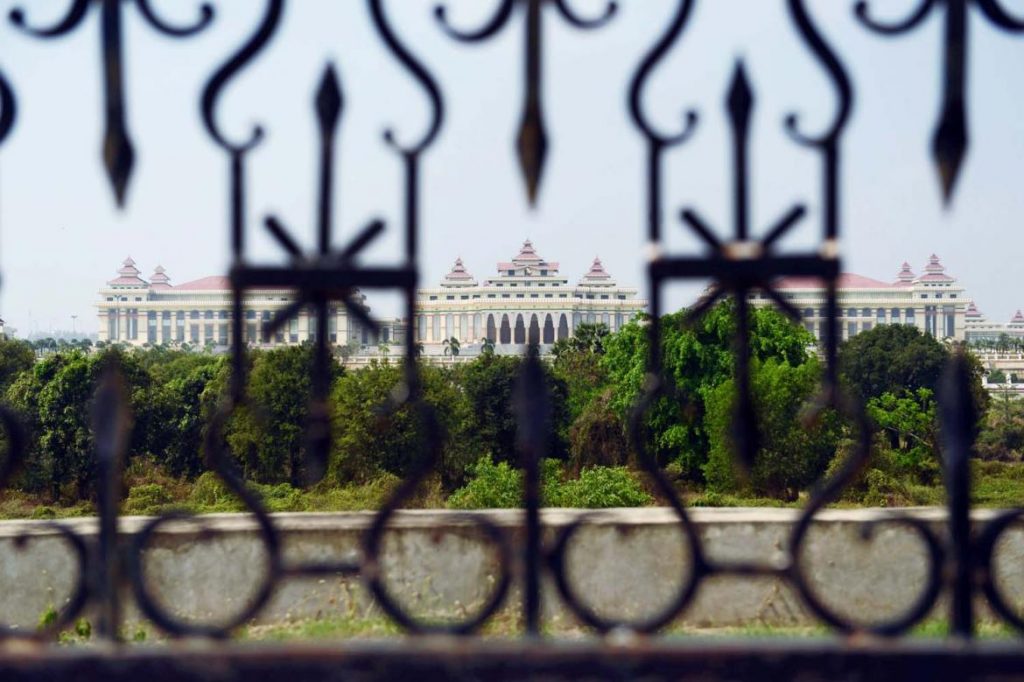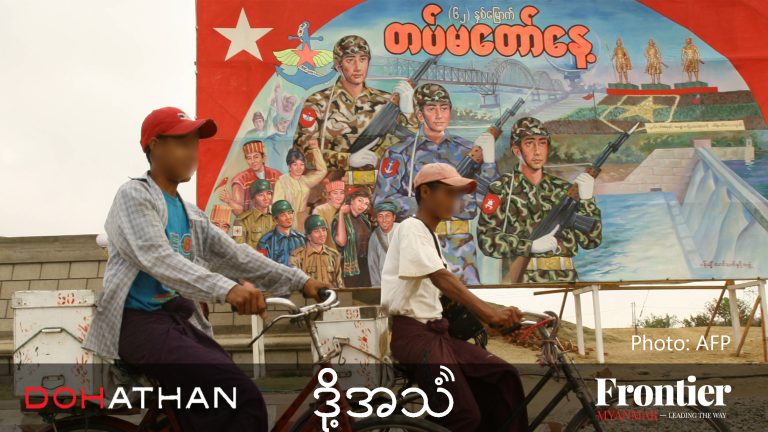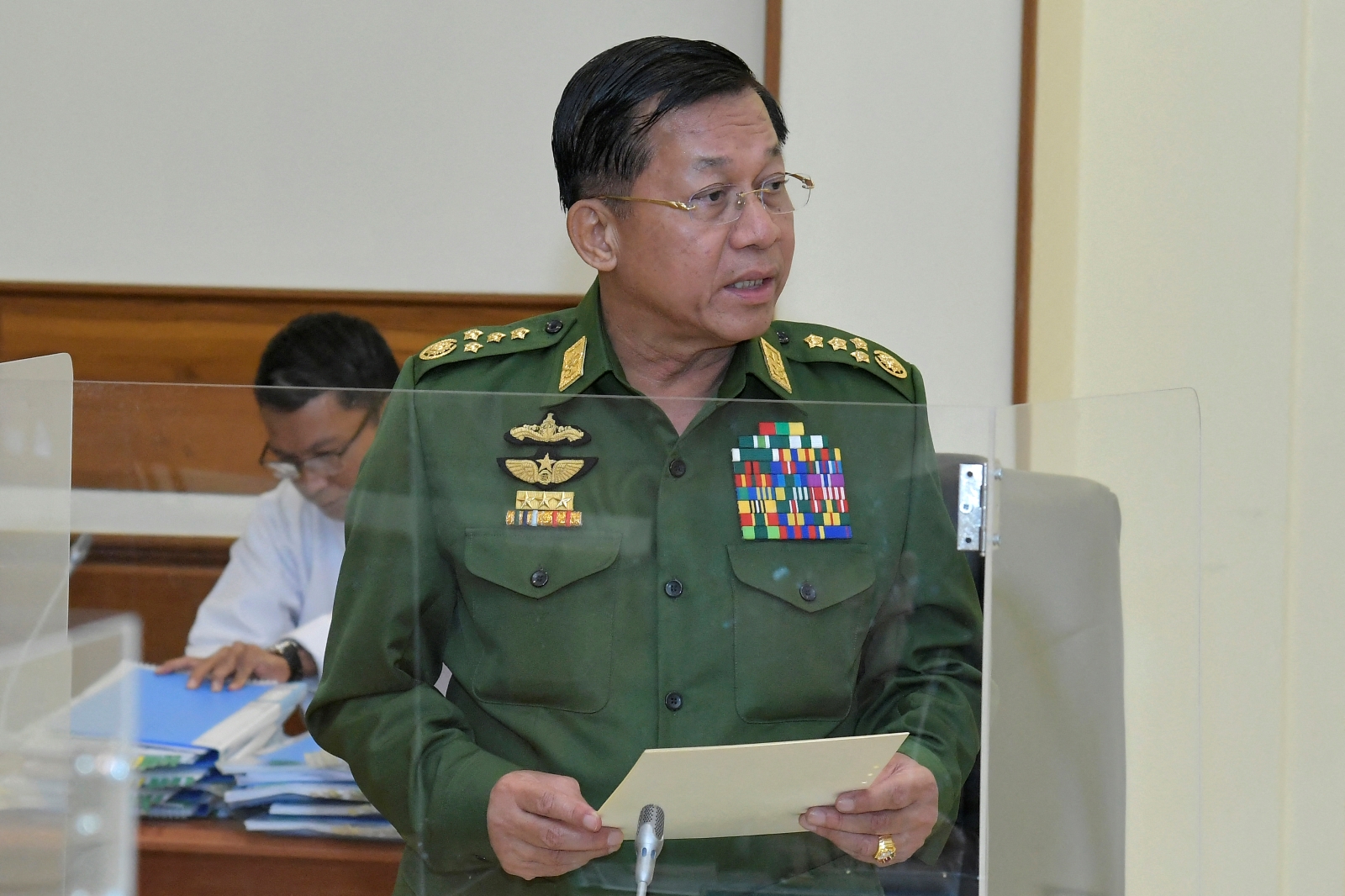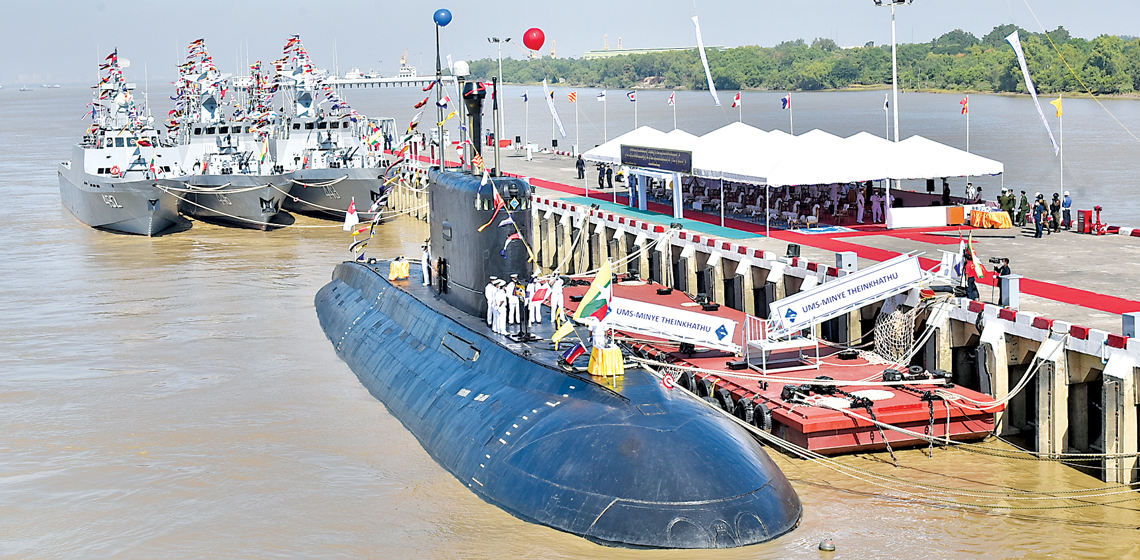Members of the Pyidaungsu Hluttaw are preparing to vote on a series of amendments to the constitution but it is unlikely that any of them will be approved.
By SITHU AUNG MYINT | FRONTIER
PROPOSALS to amend the 2008 Constitution are finally being discussed in the Pyidaungsu Hluttaw and the debate has been lively. There have been heated exchanges between members of the politically dominant National League for Democracy and unelected military MPs and lawmakers from the Union Solidarity and Development Party, who oppose the NLD’s proposals for charter reform. Debate has been so robust at times that the speaker has directed that some outbursts be expunged from the parliamentary record.
After its landslide victory in 2015, the NLD waited until January 2019 – almost three years after taking office – to begin implementing its election campaign pledge to reform the constitution. The NLD took a similar approach to that adopted by Thura U Shwe Mann in his capacity as speaker of the Pyidaungsu Hluttaw during the USDP government, and appointed a constitutional amendment joint committee, which was tasked to prepare a draft bill to amend the charter.
The unelected Tatmadaw MPs objected to the 45-member committee as being unlawful. While the NLD was trying to draft a constitutional amendment bill that incorporated the opinions of all parties in the Pyidaungsu Hluttaw, USDP and Tatmadaw MPs submitted five of their own amendment bills.
In early February, the NLD-controlled joint bill committee finalised two amendment bills and sent them to parliament for debate alongside the five USDP and military bills. One bill contains changes that would also require approval at a national referendum, while the other contains those changes that only require Pyidaungsu Hluttaw approval. We can learn from these seven bills about the changes sought to the constitution by the NLD and ethnic parties on one side, and by the Tatmadaw and USDP lawmakers, on the other.
A bill submitted by Pyithu Hluttaw MP U Thein Htun (USDP, Kyaunggon) proposes that chief ministers of the states or regions be elected by their respective hluttaw and not be appointed by the president. A similar bill from Tatmadaw MP Brigadier-General Aung San Chit proposed that the chief ministers be elected by their respective hluttaw, with which they would negotiate to form ministries and appoint ministers.
Pyithu Hluttaw MP Dr Maung Thinn (USDP, Meiktila) submitted a bill that proposed reducing the rights and authority of the president. Tatmadaw MP Brigadier-General Maung Maung proposed that the provisions in section 59(f) of the constitution, the clause about eligibility for appointment as president or vice-president that prevents Daw Aung San Suu Kyi from becoming head of state, be added to the sections that set the qualifications for Union ministers and the chief ministers of states and regions.
Amyotha Hluttaw MP U Sai Than Naing (USDP, Kayin-5) proposed an enhanced role for the 11-member National Defence and Security Council, on which the Tatmadaw formally has a majority with six seats, and which has never been formally convened by the NLD since it took office. He wants the council to meet every two months and for meetings to be convened at the request of five members. He also wants the NDSC to have the power to advise the president to dissolve parliament under certain circumstances, including a stalemate between the executive and the legislature.
The bills submitted by the NLD constitutional amendment joint committee consists of 114 proposed changes. The most important calls for a gradual reduction in the percentage of appointed Tatmadaw MPs in the Hluttaw, from the current 25 percent, to 15pc in the next Hluttaw, 10pc in the fourth Hluttaw and 5pc by 2030.
Another change calls for the phrase, “in accordance with the will of the people”, to be added to section 6(f), which states that a consistent objective of the Union “is enabling the Defence Services to be able to participate in the National political leadership role of the State”.
There is another proposal to change the make-up of the NDSC by replacing the Tatmadaw-appointed Minister of Border Affairs with the deputy speakers of the Pyithu Hluttaw and Amyotha Hluttaw, which would give civilian appointees a majority on the council.
The NLD also wants section 59(f) to be abolished and for amendments to the constitution to require the approval of more than two-thirds of the Pyidaungsu Hluttaw, rather than 75pc, as stipulated in section 436.
The proposed changes sought by the NLD and by the Tatmadaw and the USDP are as different as chalk and cheese.
The NLD wants a democratic constitution that ensures a greatly reduced role for the Tatmadaw; the Tatmadaw and the USDP want a more centralised, undemocratic charter.
Tatmadaw and USDP lawmakers have consistently dismissed and rejected the amendments proposed by the NLD and are especially opposed to the move to reduce the percentage of appointed Tatmadaw MPs in the hluttaws from 25pc to 5pc in 10 years.
Their reasons for opposing this and other amendments include that the transition to democracy began only nine years ago and continuing challenges to the rule of law and security because of internal armed conflict and foreign interference pose a threat to national sovereignty. The Tatmadaw remains firmly opposed to any move to abolish 59(f), which makes Aung San Suu Kyi ineligible for the presidency because immediate family members, her British sons, are foreign citizens.
The proposed amendments, including additions and deletions, will be put to a vote after the debate concludes. There is a total of 654 MPs in the Pyidaungsu Hluttaw and amendments will need the support of at least 491 lawmakers to be approved, said Dr Myat Nyana Soe, secretary of the bill screening joint committee. There are 488 elected representatives in the Pyidaungsu Hluttaw and even if all elected MPs support an amendment it will not have the support needed for approval.
Based on these figures, it is probable that only amendments that both NLD and the Tatmadaw support will be approved. None of the change opposed by either side will be able to pass. So far though there has been no agreement between the NLD and the Tatmadaw on any of the proposed amendments submitted to the Pyidaungsu Hluttaw.
It will be little surprise then, after the voting in the hluttaw has been completed, if the move to amend the constitution has achieved nothing.







